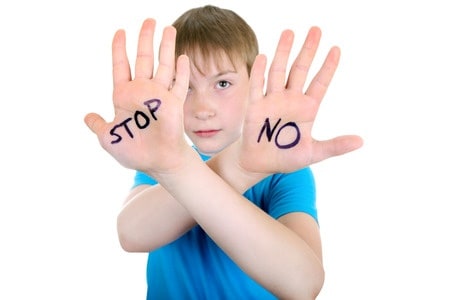From politicians to celebrities, the topic of consent has been making big headlines lately. When young people come forward with their stories of being violated by people in positions of power, many parents may begin to worry about how to prepare their children to protect themselves as they get older. Learning about consent as a young child can help children to identify behavior that is inappropriate, and they can learn to both protect themselves and to respect the privacy and agency of other peoples’ bodies.
Remember to model consent for your child. Before you brush her hair, wash her in the bath, or get her dressed, ask before you begin each step. Give her choices when it comes to which clothing she is going to wear and which food she is going to eat, because that will help her to feel as if she has control over what goes on and into her body.
Don’t force your kids to express affection. Many parents have experienced that cringe-worthy moment when strangers or acquaintances ask for a kiss or hug. It’s OK to let your child know that he can decide whether he wants to give a kiss, a hug, or even just a high-five or a blown kiss. Even close relatives like grandparents should not feel entitled to a specific form of affection. Let your child decide when and how he wants to express affection.
You can also begin to speak with your child about potential danger, in a gentle way. You can let her know that parts of her body are private, specifically the area which is covered by her bathing suit. Tell her that if anyone tries to touch her in those areas, she should say “no” and go to tell someone who she trusts. Let her know that if someone tells her to keep touching a secret, she should still tell you what happened. And tell her that she also needs to respect the private areas of other people.
Keep the conversation going as your child gets older. As he approaches puberty, he may have a lot of questions about the way his body is changing, and you can approach the topic, letting him know that he can come to you with any questions. Similarly, as other kids begin to experiment sexually, let him know that is he is confused or uncomfortable, he can talk to you about the decisions he makes.
Have you begun to have conversations with your young child about consent? How comfortable did you feel having these conversations? Let us know in the comments section!

